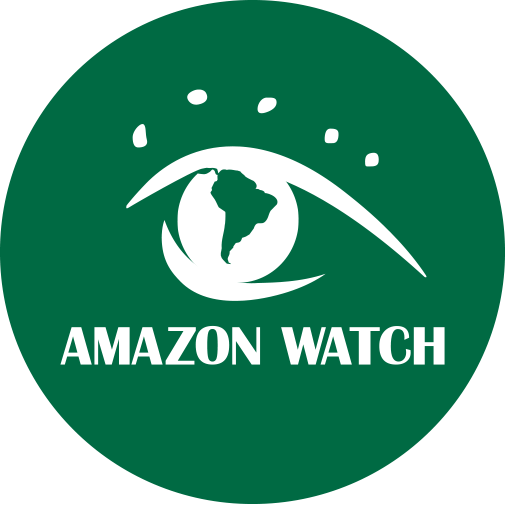Pajé Fabiana Borari, context of indigenous health, Baixo Tapajós
Fabiana Borari, pajé e agente de saúde do DSEI Guatoc, nativa de Alter do Chão, oeste do Pará.
O Pajé Nato Tupinambá benzendo uma indígena
Living in the transit between the tradition of shamanism and her work as an Indigenous health care agent. This is the real experience of Fabiana Borari, who dedicates her daily routine to providing access to health care for her relatives of 13 ethnic groups in the Lower Tapajós River, in the state of Pará. For years, Borari has been divided between her office and field work, and her spiritual obligations—forest medicine and generational tradition. Her shamanism is practiced only with family and relatives, but her dedication to Indigenous health is an integral part of her life.

Fabiana em seu local de trabalho
Because she bears the traditional knowledge of medicinal herbs from birth, and also because she knows the inside workings of Indigenous health care, Fabiana understands the concept of health in a broader way than the mere application of external care to the villages. “Indigenous health for me is using our knowledge, our traditional wisdom, using nature’s resources for our benefit. This knowledge is passed along from generation to generation—father to son, grandfather to grandson. This, for me, is Indigenous health,” she explains.

Do quintal de casa, Fabiana extrai a matéria prima para seus chás e preparos que cuidam da saúde de sua família e amigos
The use of traditional knowledge to ensure health has been part of the National Health Care Policy for Indigenous Peoples for the past 22 years in Brazil. According to policy implemented by the Ministry of Health, the adoption of a complementary and distinct model is aimed at “protecting, promoting and restoring health” and should guarantee that Indigenous peoples exercise their citizenship in this field.
To that end, ensuring the right to health care for traditional populations means considering the ethnic and cultural specificities and the territorial rights of Indigenous peoples. But is traditional knowledge actually taken into consideration?

Os filhos da jovem pajé aprendem diariamente sobre a medicina da floresta

“”We cannot devalue the scientific knowledge of that professional who spent six years at a university, but also that professional, who studied the scientific part, not devalue the traditional knowledge of that person, it comes from the cradle, they were born with this knowledge,” emphasizes Fabiana.

Fabiana observa frasco com óleo de andiroba, que tem diversas propriedades, como cicatrizante e antiinflamatório
Indigenous Health in Times of Covid-19
Indigenous health care, as a State policy, works through a Health Care Subsystem for Indigenous Peoples (SasiSUS), coordinated by the Special Secretariat of Indigenous Health. Linked with SUS, decentralized and with administrative, budgetary and financial autonomy, SasiSUS is currently present in 34 Special Indigenous Sanitary Districts (DSEIs) across the national territory.

Fabiana observes a bottle with andiroba oil, which has several properties, such as anti-scarring and anti-inflammatory

Fabiana chega ao DSEI em Santarém, após quase duas horas em trânsito
Indigenous health care, as a State policy, works through a Health Care Subsystem for Indigenous Peoples (SasiSUS), coordinated by the Special Secretariat of Indigenous Health. Linked with SUS, decentralized and with administrative, budgetary and financial autonomy, SasiSUS is currently present in 34 Special Indigenous Sanitary Districts (DSEIs) across the national territory.
The DSEIs are responsible for providing primary health care to people living in Indigenous Lands (TIs) located within that territory. When another type of care is needed, such as surgeries, tests or other procedures, SasiSUS needs to liaise with the regional SUS to provide any type of treatment for Indigenous people. Therefore, despite its autonomy, the Indigenous service system is directly dependent on the demand of conventional SUS, especially in medium- and high-complexity scenarios.
In times of pandemic crisis, and with the need to strengthen investment in health mechanisms, indigenous people are among the most affected, as cuts in the budget for this sector by an avowedly anti-indigenous government have greatly impacted crisis management in traditional territories.

e nunca deixa de atenderàs demandas que chegam até ela
According to the Advanced Budget Management Information System (SIGA Brasil), the authorized budget amount for indigenous health care in 2020 was R$ 1.38 billion, the lowest amount in the last eight years. In addition, another resource intended to guarantee access to indigenous health care was reduced by R$ 46.8 million in 2020. This is the amount intended for “Basic Sanitation in Indigenous Villages for the Prevention of Diseases and Conditions.”
With these cuts and the biggest pandemic crisis of this century, the deficiencies in medical care coverage for indigenous territories have deepened, causing the dismantling of the “special indigenous health policy, the result of a historic struggle,” as shown in the white paper “Budget Execution of Indigenous Health in the Face of the Pandemic of the Novel Coronavirus,” by the Institute of Socioeconomic Studies (INESC).
Amidst the systemic lack of assistance, the indigenous movement itself had to bear the articulation of inputs in order to guarantee health care access for villages, in times of Covid-19. In addition, the commitment of indigenous agents in the field was essential to ensure that the few resources made available were optimized.
In the Lower Tapajós, the region where Fabiana Borari works as an Indigenous Health Agent, there were — indigenous people infected by Covid-19, and — deaths. The total budget made available for the region was —. When the pandemic began to devastate the region, the lack of resources was significant, making simple testing impossible.

In view of the precarious assistance provided by the public authorities, the bonds with forest medicine and the gift of healing are absolutely necessary, especially under the greatest health crisis of this century. The deep connection of indigenous peoples with their territories and their ancestral knowledge have been vital in combating the pandemic. The heart drawn on the side of the vegetable garden was made by Alejandro, son of Fabiana

“Because it’s a very small team for almost ten thousand Indigenous people in the Lower Tapajós, anything that happened, we thought, ‘it’s Covid, it’s here,’ and we came to understand (on our own), since there are no tests for everyone, and it’s difficult to test to make sure if it’s Covid or not.” It was in this scenario of lack of assistance that the ties with shamanism were strengthened even further. “That’s when we started to strengthen our bonds with regard to Indigenous health, with our shamans, with our traditional knowledge,” explains Fabiana.
Special health care for the Indigenous peoples of the Lower Tapajós, including those who traditionally occupy territories that have not yet been demarcated, as well as Indigenous people who live in urban contexts, is carried out through primary care, with — clinics and a floating hospital, the Abaré boat, run by the Universidade Federal do Oeste do Pará.
Health care teams in the districts should include physicians, nurses, dentists, nursing assistants and Indigenous health agents, with the systematic participation of anthropologists, educators, sanitary engineers, as well as other specialists and technicians deemed necessary. However, currently, the DSEI Guamá Tocantins only had — to go through the most critical moments of the pandemic. There are — families in all that have experienced precarious care.


Para Fabiana Borari, o conhecimento ancestral tem muito a contribuir para a medicina científica ocidental
On the other hand, the shamans proved to be essential in guaranteeing care for those infected with the virus. “Today, Indigenous health has contributed a lot, because our shamans master the experience within the village, which has always had natural resources through medicine, through medicinal plants,” emphasizes Fabiana Borari.
Now, the biggest challenge is the immunization process. Although the Indigenous people are a priority group for vaccination, the anti-vaccine discourses encouraged by the current administration echo in the villages and, in some cases, cause rejection against the immunization campaign. “This rejection emerged from several comments about the vaccine, shared on WhatsApp. Many said that the vaccine was used to kill the Indians, others said that people would turn into alligators, even my father said ‘Now I’ll turn into an alligator, because I already had the vaccine’,” says Fabiana.
FROM MOTHER TO SON: The Sacaca Boy

At age 12, Alejandro has the habit of drawing hearts all over the place.
Alejandro Borari is 12 years old and is the son of the shaman and Indigenous health agent Fabiana Borari. Like his mother, he was born sacaca, the name that the Indigenous people of the Lower Tapajós give to those born with the gift of healing. For her, who practices her shamanism only with family members, prejudice against rituals is still present in the urban area of Alter do Chão, where her family lives.

Alejandro’s gift causes embarrassment even among his siblings, who sometimes fear when the young sacaca talks about his visions

“It’s not just prejudice, it’s also fear, because they treat him differently. I see it for what I experience with my son. Sometimes there are people who are a little afraid of him. Sometimes they say, ‘Look, the macumbeiro (voodooist) has arrived. In the macumbeiro’s house, what gets dirty is washed’,” says Fabiana.

Fabiana is aware of the pressure of social judgment to which Alejandro is subjected, for having the gift of healing
Ela conta que, desde pequeno, Alejandro começou a apresentar sinais da pajelança e que só vem se fortalecendo com o passar dos anos.

“She says that, from a young age, Alejandro began to show signs of shamanism that has only been getting stronger over the years. “He was born with it, that’s why I say he’s sacaca, a knower of knowledge. I can’t interfere because he was born with it, I’m just here to support him,” she explains..
Due to the constraints he suffers, Alejandro says that, in many moments, he remains silent and prefers not to share what he feels. “I pull, bless and teach medicine. Some (people) don’t believe me when I say it, then I don’t say anything else, I just keep to myself,” Alejandro concludes.
Galeria





Reportagem especial: Mídia Ninja e Amazon Watch
Reportagem: Tainá Aragão
Fotos: Leonardo Milano
Vídeos: Priscilla Tapajoara
Edição de Vídeo: Benjamin Mast
Design: Yasmim Moura, Aruan Mattos
Diagramação e montagem: Kelly Mariah Batista









